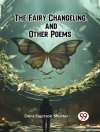‘Sappho and Phaon’ by Mary Robinson is a poignant sonnet sequence that breathes life into the legendary tale of the ancient poetess Sappho’s tragic love. Robinson, known as ‘the English Sappho, ‘ was a pioneering female author and feminist trailblazer with a dramatic life story. Abandoned by her father at a young age, she turned to teaching and acting, capturing the heart of the Prince of Wales before transforming into a respected writer.
In this work, Robinson reimagines Sappho not as the iconic figure of later centuries, but as the Renaissance had often portrayed her: a tortured lover, hopelessly enamored with Phaon, a boatman. Her pursuit of Phaon to Sicily and her eventual leap from the Leucadian cliffs symbolize a profound narrative of passionate love and despair. The tale likely resonated deeply with Robinson’s own experiences of love and rejection.
Robinson’s Sappho diverges from historical accuracies, focusing instead on the emotional depth and human complexities of her characters. This sonnet sequence stands as a testament to Robinson’s literary talent and her ability to weave personal anguish into timeless art. ‘Sappho and Phaon’ invites readers to experience a moving portrayal of love, loss, and the enduring power of poetry.












